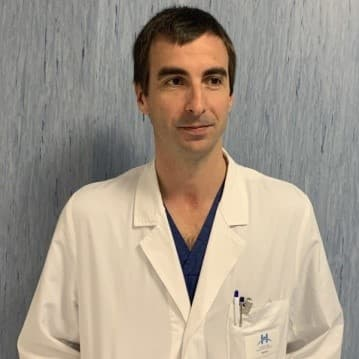SPIGC XXXIV National Congress Special Issue–Future in Progress
A special issue of Journal of Clinical Medicine (ISSN 2077-0383). This special issue belongs to the section "General Surgery".
Deadline for manuscript submissions: 25 April 2024 | Viewed by 1635
Special Issue Editors
Interests: pancreatic cancer; pancreatic surgery; hepatobiliary cancers; liver surgery; liver transplant; miniinvasive surgery, surgical oncology
Special Issues, Collections and Topics in MDPI journals
Interests: liver transplant; pancreatic cancer; pancreatic surgery; liver surgery; miniinvasive surgery; surgical oncology
Interests: HPB; liver; minimally invasive liver; robotic liver; laparoscopic liver; cholangiocarcinoma; colorectal liver metastases; hepatocellular carcinoma; liver tumors; liver hypertrophy
Interests: breast reconstruction; microsurgery; plastic surgery; lymphedema; malformation; skin cancers; sarcoma; breast cancer
Interests: colorectal surgery; acute diverticulitis; laparoscopic surgery; robotic surgery; ERAS protocol; inguinal and ventral hernia repair; day surgery.
Special Issue Information
Dear Colleagues,
It is with great pleasure that we announce the 34th National Congress of the Italian Polyspecialist Society of Young Surgeons (SPIGC), which will be held in Rome from 14 to 16 June 2023.
This is the most important event of our Society, which after the pandemic period is finally back in attendance, with the participation of young general surgeons and specialists from all over Italy.
Restart, technology and the future of young surgeons will be the leitmotifs of the Congress; we would like the same topics to be addressed in this Special Issue on the surgery of the future in all its disciplines: general surgery, transplantation, plastic and reconstructive, orthopedic, gynecological, thoracic, urological, vascular, ENT, maxillofacial, pediatric and cardiac surgery.
SPIGC has always promoted research activities among young surgeons, and we therefore hope to obtain the greatest possible number of contributions from our members and other in this Special Issue.
Dr. Alessandro Coppola
Dr. Roberto L. Meniconi
Dr. Francesca Ratti
Dr. Michele Maruccia
Dr. Andrea Mazzari
Guest Editors
Manuscript Submission Information
Manuscripts should be submitted online at www.mdpi.com by registering and logging in to this website. Once you are registered, click here to go to the submission form. Manuscripts can be submitted until the deadline. All submissions that pass pre-check are peer-reviewed. Accepted papers will be published continuously in the journal (as soon as accepted) and will be listed together on the special issue website. Research articles, review articles as well as short communications are invited. For planned papers, a title and short abstract (about 100 words) can be sent to the Editorial Office for announcement on this website.
Submitted manuscripts should not have been published previously, nor be under consideration for publication elsewhere (except conference proceedings papers). All manuscripts are thoroughly refereed through a single-blind peer-review process. A guide for authors and other relevant information for submission of manuscripts is available on the Instructions for Authors page. Journal of Clinical Medicine is an international peer-reviewed open access semimonthly journal published by MDPI.
Please visit the Instructions for Authors page before submitting a manuscript. The Article Processing Charge (APC) for publication in this open access journal is 2600 CHF (Swiss Francs). Submitted papers should be well formatted and use good English. Authors may use MDPI's English editing service prior to publication or during author revisions.
Keywords
- general surgery
- innovative surgery
- specialistic surgery
- future surgery
- SPIGC










